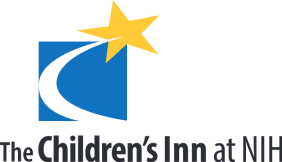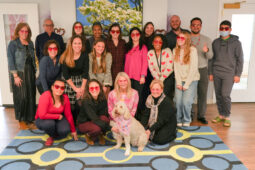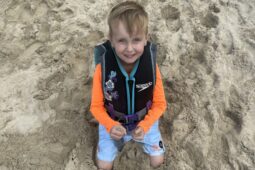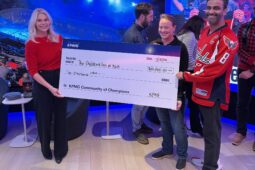A New Trial Brings New Hope for Mark
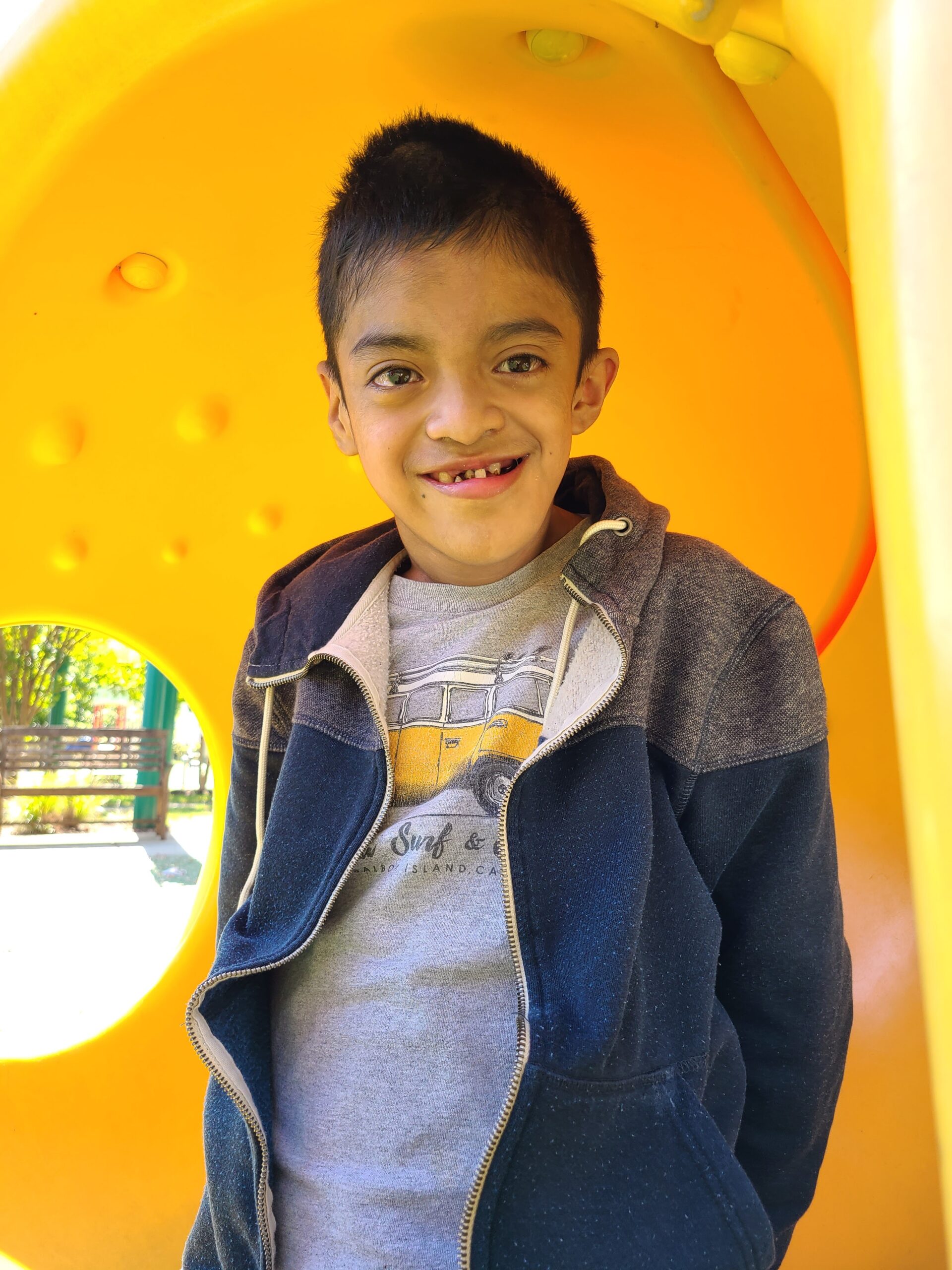
Mark on the playground at The Children’s Inn at NIH
In many ways, Mark is a typical boy on the verge of his teen years. His interests include cars, eating, and sleeping. He helps his mother with the dishes when he can and has a lot of energy, and his smile can warm a room on a cold day in early winter. But Mark, a 12-year-old from Guatemala, would have trouble putting his enthusiasm into words.
When Mark was about five years old, he was diagnosed with Proteus syndrome, a progressive disease that is characterized by asymmetric and excessive growth of a part or portion of the body. The symptoms had presented themselves gradually, but over time have robbed him of most of his ability to walk and talk.
“He was born like a normal baby, but when he should have started to walk, he had problems,” remembered his mother, Gladys. “He was falling frequently, and we realized that he had a problem with his knees.”
Mark’s parents took him to a pediatrician in their town in Guatemala, who discovered that he had an abnormally large vein in one of his knees. Recognizing that this might be more than a minor issue, the doctor sent Mark and his family to specialists in Guatemala City.
Over the next three years, geneticists and other doctors in the capital city kept Mark for regular study and observation, eventually making a diagnosis of Proteus syndrome.
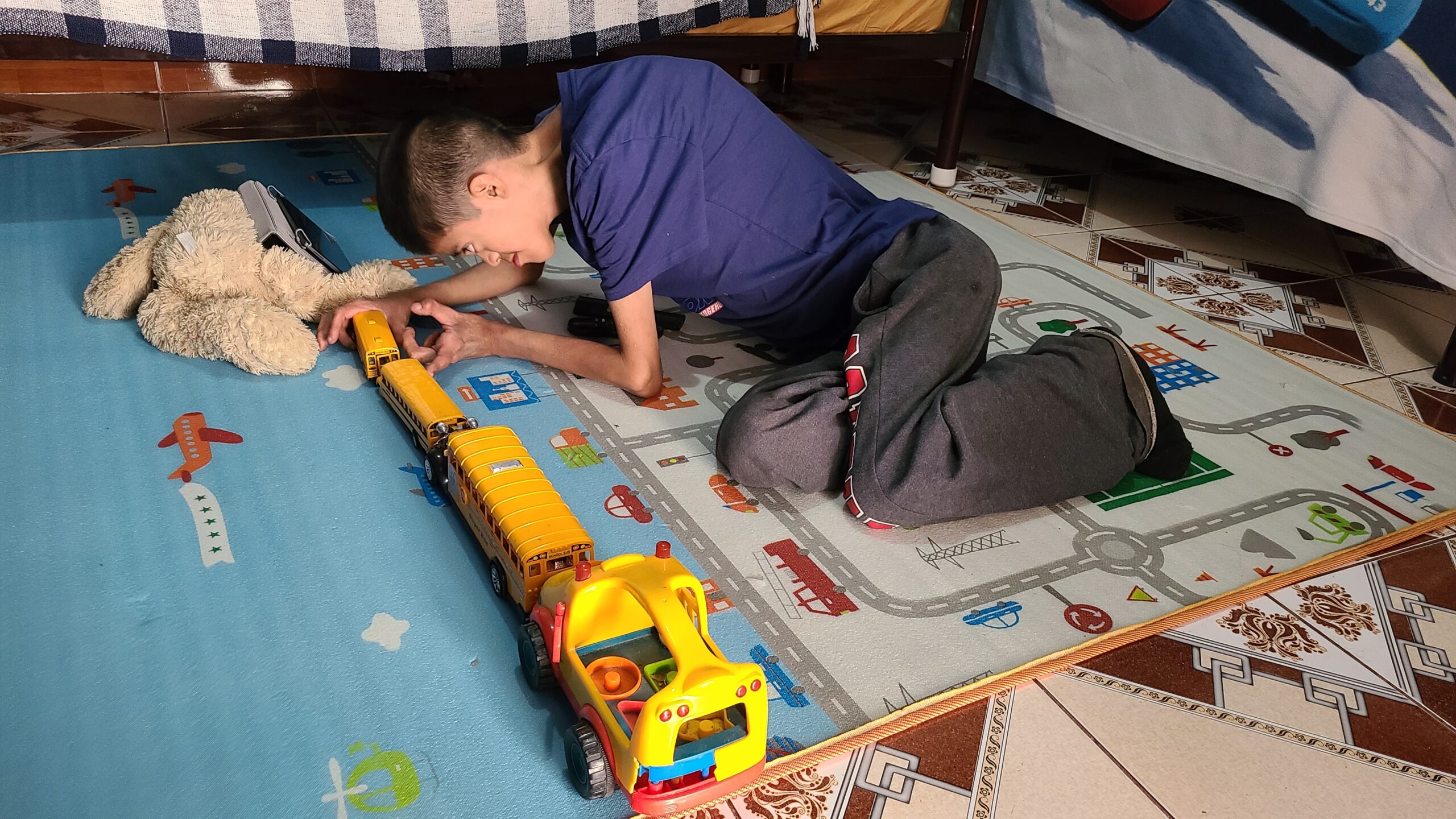
Mark builds a train at home in Guatemala.
“They said they couldn’t do anything for him in the medical system available in Guatemala,” explained Gladys. “They recommended that if we had the chance to go to the States, we should go.”
It took Mark’s family some time to connect with an American pediatrician who found the team at the National Institutes of Health working on Proteus syndrome. They had to confirm Mark’s diagnosis, and once they had, they accepted him into the program at the NIH.
“We started in 2015 when Mark was five,” said Gladys. “He could still speak and explain what was happening to him, but he had some delays.”
During their frequent trips to the NIH, Mark and his family have always stayed at The Children’s Inn. The middle child of three boys, Mark is usually accompanied by Gladys and his father, Jose. Sometimes, Mark’s older brother takes Jose’s place. Mark needs two caregivers on his trip due to his mobility issues. Nevertheless, he finds ways to stay active and engaged at The Inn.
“When we have the opportunity to go out [of our room], he likes to play in the playground,” Gladys laughed. “In October, we went outside. He just likes to play and meet other people, either on the playground or in the playroom inside.”
Mark was due to begin a clinical drug trial in 2020, but the COVID-19 pandemic delayed the start of that trial until October 2022. Now a few months into it, Mark and his family make the trip to Bethesda once a month, sometimes staying for more than two weeks at a time. The trial is expected to last several years.
As a frequent guest at The Inn, Mark is glad to have such a welcoming place to stay for what will become even more regular visits. “They really do take care of all of us,” Gladys said. “They help us with anything we need. And we’ve met so many wonderful people at The Children’s Inn. This is a really good place. They say that it’s ‘a place like home,’ but for some people, it’s better than their home. It’s a really good place to be.”
The trial has not been going on long enough for Gladys and Jose to see any discernable impact on Mark, but they are optimistic about what is to come.
“It’s hard to know exactly how it’s going to be,” Gladys said. “Proteus syndrome is progressive. He can’t walk, he can’t speak much, but he understands. We really are hoping to see a change in him. His doctors and everyone at The Children’s Inn really do help us, though. We will see how it goes.”
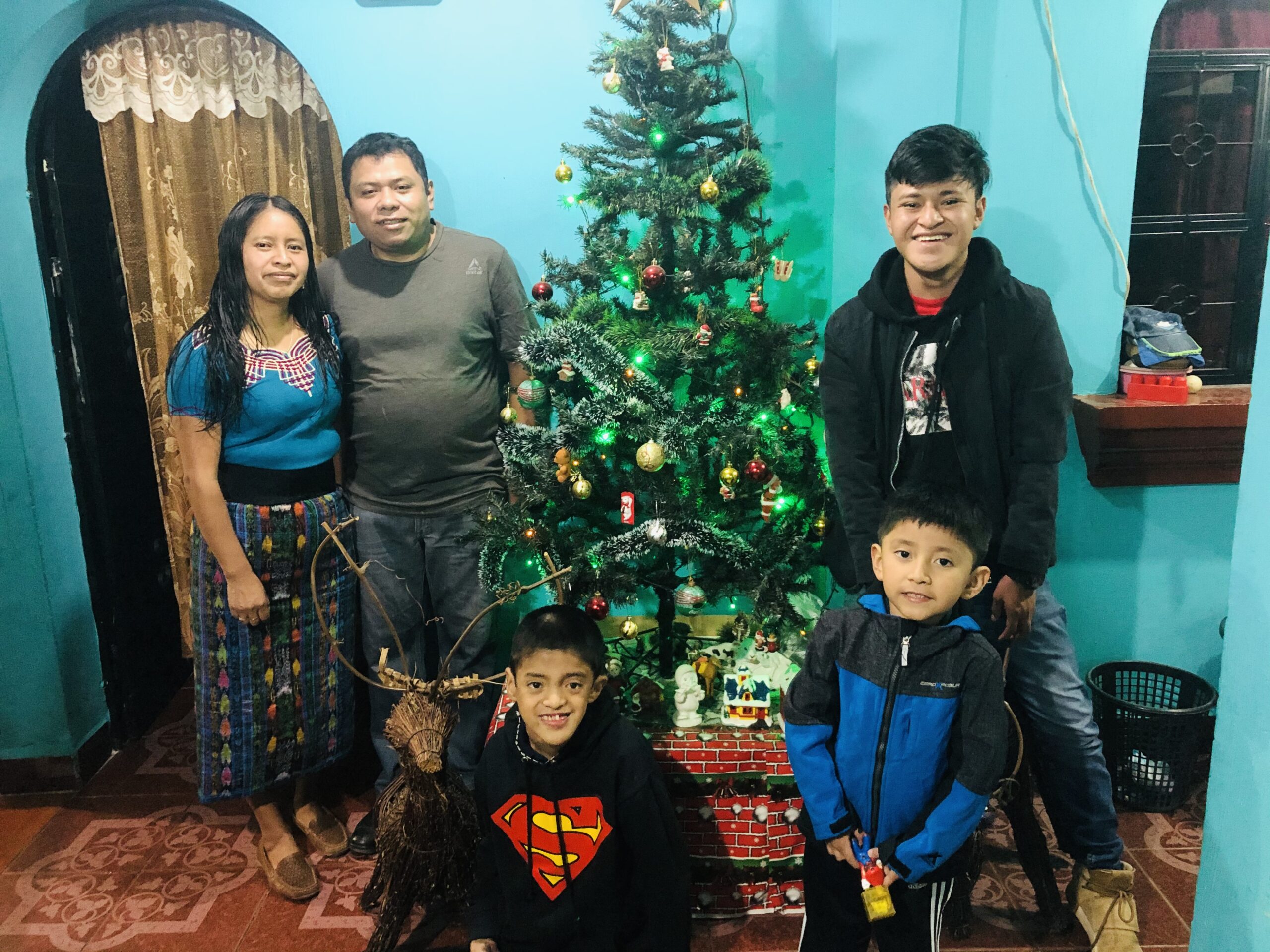
Mark and his family
